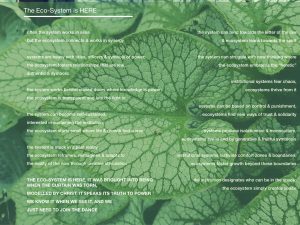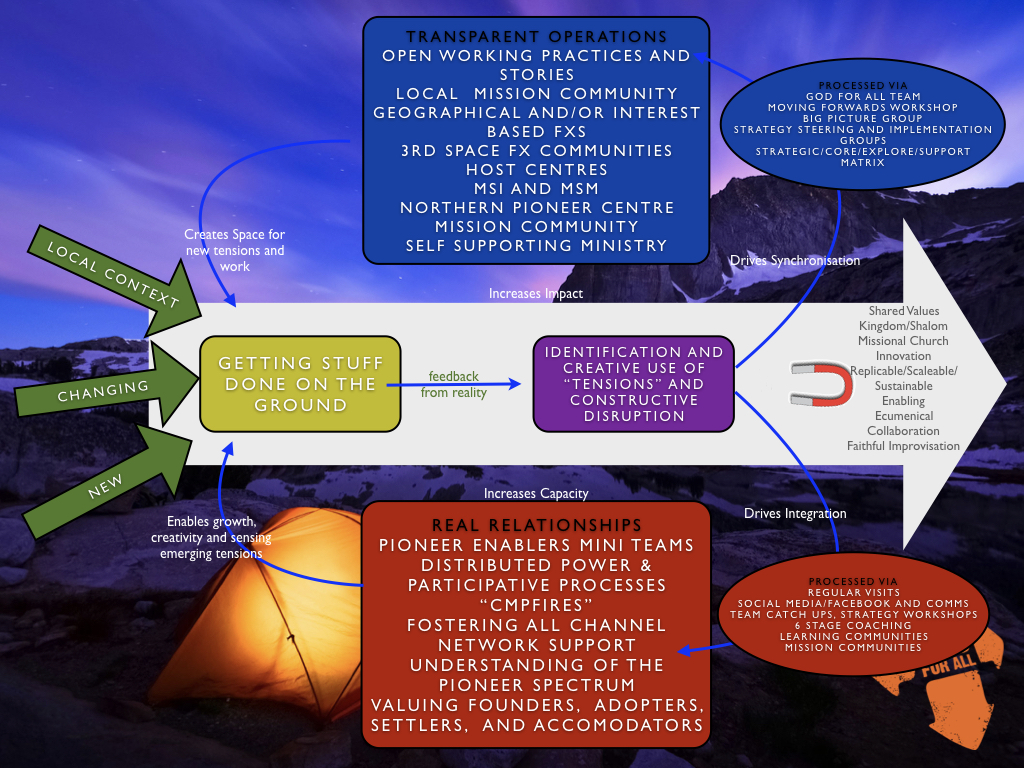It was Leon Festinger who termed the phrase “cognitive dissonance” as he observed that when reality clashes with our deepest convictions we would rather recalibrate reality than amend our worldview. So when we are seeking change in church circles, or with people of faith, facts and evidence can often make little difference. John Maynard Keynes said “The difficulty lies, not in the new ideas, but in escaping from the old ones”. So the question isn’t about the lack of new ideas but about HOW people and society moves forward into the new. This forward trajectory towards love and peace, is central to the christian narrative, the missio dei reconnection of church and mission, calls the church as the living text, the same spirit that called the early church calls us on to the kingdom that is now and not yet. A kingdom narrated and marked by love and grace. So the HOW remains the issue.
I want to unpack the HOW and the role cognitive dissonance plays by looking at a little twitter conversation I had with Jason Gardner who raised the question “In a dominantly secular age, surely Christianity – all religion – is seen as irrelevant. Do we fight for relevance or admit that culture clashes are inevitable as the worldviews of secularism and theism are utterly opposed?” Personally I think they are both far less opposed than we think, but both ideologies that people want to protect. The issue for theist is more about how wedded to the old we are when are part of the kingdom that is now and not yet, and called to be part of the ongoing living text. Jason response raised two really important issues, “the New Testament way is ‘live such good lives’ that people can’t argue against our way of life but Jesus was clear that the world will still hate us. Still living the story is key.” I assume he was drawing on 1 Peter in the first part “live such good Lives” and I love this text because it is so grounded, rooted in locality and space and time and a community (and hate it because it is such a high call). Whilst Jesus parts are more generalised, the “world” (root cosmos) will hate us, perhaps he is being more parabolic and what he is addressing is more about the powers (the strongman is the systems of oppression and violence, social, economic and political domination that pervade our world see Ched Myers reading of Mark) and people wedded to the accepted ways of being, those seeking to hold onto what they have, know, think. Because when I am in local grounded spaces where people are questioning the powers, the old dichotomies and binaries, I find tremendous love and grace more often than not from people who would not call themselves christians. Yet when I am spaces where christians are drawing lines of who is in and who is out, what is true and wand what isn’t, I usually find the opposite of the grace and love that is supposed to mark the kingdom.
So I wonder if Jesus is saying us being hated is too often used by people in power to prop up the status quo and not wrestle with what good looks like, and in doing so disconnects from the ongoing story of Jesus. The world hating us gets used to excuse as cognitive dissonance to prop up ways of being that end up showing very little love and reinforces old ideologies that struggle to connect with the church as the living and emerging text. As Dean chipped into the twitter conversation “creating a siege mentality leads to a culture war… which is just a clanging gong”


